
Our Day Will Come: The Inevitability of Irish Unification as Brexit Approaches
On June 23rd, 2016, the citizens of the UK voted to leave the European Union. This began an unprecedented process of dissociation, commonly known as Brexit. Among the many challenges that Brexit poses is how to handle the border between Britain and the Republic of Ireland. In the recent past, the “soft” border between the two nations has allowed for the free flow of people and goods. However, if Brexit negotiations fail, a “hard” border will replace the currently soft border between the Republic and Northern Ireland. This presents a problem because under present conditions the border allows for mutually beneficial economic and social exchange, as well as having been instrumental in guaranteeing the Northern Irish peace process. This border …

Collateral Benefit: Brexit as Catalyst for European Structural Reform?
Brexit, if it has to happen, could have a silver lining. It could be an opportunity to reform and refashion the European project by making good on the aspiration of an ever-closer political union, needed today more than ever before. The Need for a Stronger Union President Macron addressing the need for EU reform with deeper political integration 26 September 2017 at the Sorbonne in Paris. Photograph: Ludovic Marin/Reuters Judging from my experience in the UN climate change negotiations, the EU can be a major international player and a force for good, but only if it ceases to ‘punch below its weight’ due to a lack of political union. This is why I fully concur with the view expressed by …
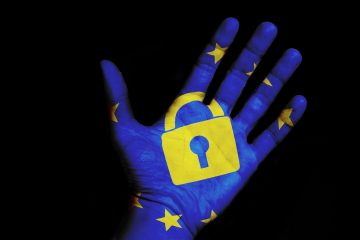
Be vigilant of the UK government’s attempts to increase its surveillance powers
Cybersecurity has become a major concern for governments, companies and citizens, as some of their most sensitive information is routinely stored and communicated online. Rogue attackers can steal confidential information or corrupt their databases, potentially leading to critical security incidents ranging from reputational damages and economic losses to national security risks. The threat, however, works in two ways. While companies and governments are concerned about being targets of digital infiltration, they have used these technologies to obtain extensive information from common citizens for crime and terrorism prevention or commercial purposes. Collecting geolocationdata and screening social networks are now common practices, relatively easy to carry out due to the embedded features of modern devices. For years, many surveillance practices were conducted …
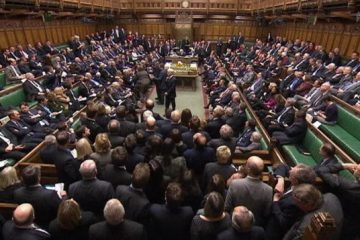
Brexit from the back benches: have the whips become the straw men of British politics?
The liberal philosopher A.C. Grayling is one of the foremost opponents of Brexit. No doubt he salutes the bravery of those Tory MPs dubbed ‘mutineers’ by the Daily Telegraph when they brought about Theresa May’s first Commons defeat as they supported an amendment to her EU withdrawal bill to give Parliament a legal guarantee of a vote on the final Brexit deal”. These Tory MPs defied the so-called ‘party whip’. Whips are MPs appointed by parties in Parliament to do what they can to make sure party members vote the way the party wants. Grayling is not a fan of the whipping system in general: he regards whipping as ‘undemocratic’, and he connects it to increasing levels of mistrust in MPs and …
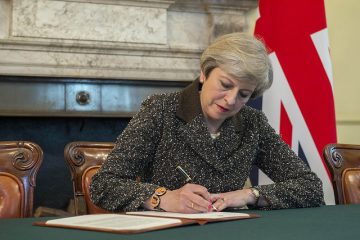
Why a larger Conservative majority in Westminster may lead to a weaker bargaining position in Brussels
It is predicted that Prime Minister Theresa May’s Conservative Party will achieve a significant victory in the upcoming general election on June 8. If the predictions are correct — though at the time of writing Labour is advancing in the polls — May will find herself in a more comfortable position domestically, governing with a larger majority. On the international stage, however, will this increase in domestic power lead to an advantage for the United Kingdom at the negotiation table in Brussels? The Brussels-based press seems to think so, writing that “victory will allow May to head into EU-UK Brexit negotiations with a strengthened hand at home” and “if the U.K. holds a general election in June, Brussels can only lose.” May …
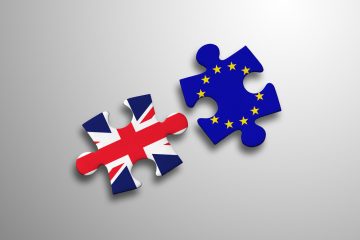
What Brexit means for Britain’s future, according to Oxford University’s Chancellor
As Britain formally triggers the doleful negotiations to exclude itself from the mainstream of European politics and economics, Prime Minister Theresa May refuses to use the word “divorce” to describe what is happening. My wife, a retired family lawyer and mediator, thinks May could be correct. After all, the family house we are exiting still contains much of our history and family silver, as well as our future economic interest. In that sense, divorce is scarcely an option. Britain has not been as insular an island as some people take it to be. From our reigning royal family (which is German) to our exports (overwhelmingly to Europe), we have helped to shape and in our turn been shaped by developments …
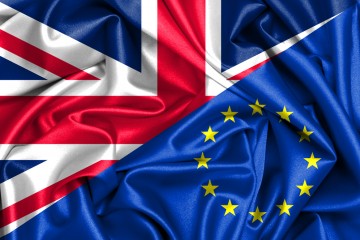
Brexit: Yes, you will suffer as well
Bankrupt regions, impoverished hospitals, overcrowded prisons: Brexit will affect everybody in Europe. And yet nobody is taking responsibility for the mess. It is official now. The United Kingdom has invoked Article 50 of the Lisbon Treaty and will leave the European Union. Don’t take it lightly — this is not fake news, this is a historic event which will change Europe and your own situation dramatically. Disintegration of the continent is moving at full speed and it will generate many losers. You may not feel it yet, but life will be harder for a long time before it will get any better. The damage is largely self-inflicted; thanks to poor political craftsmanship on the two sides of the English Channel. …

Complex Negotiations are Dynamic and Unpredictable: An analysis of Sturgeon’s and May’s approach to Brexit
In the week of 13 March, two momentous events took place. Parliament passed the bill giving the government authority to notify the European Council that the United Kingdom intends to withdraw from the European Union. And First Minister Nicola Sturgeon announced that her government will introduce legislation for a second independence referendum for Scotland. The first occurred despite the House of Lords’ insistence on a prior guarantee of the status of EU citizens or of an up-or-down vote on the final deal (or no deal); the second was a surprise move, seemingly calculated to pre-empt a positive news cycle on the day the bill was approved. These two leaders’ approaches to Brexit so far show the difference between imposing order and control in an …









